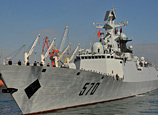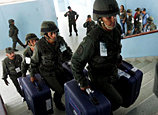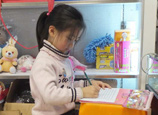
During Kerry's stay in Beijing, the two sides are also expected to nail down details of continuing bilateral consultations and dialogue mechanisms, led by the annual Strategic and Economic Dialogue, and enhancing coordination within multilateral frameworks of the Group of 20 and Asia-Pacific Economic Cooperation, to improve global economic governance and score a strong, sustainable and balanced growth in the world economy.
Being Washington's veteran foreign policy expert and the chief executor of Obama administration's China policies, Kerry is expected to play an important role in advancing the China-U.S. relationship from a strategic long-term perspective by boosting bilateral dialogues, mutual trust and cooperation.
A new sense of optimism was felt about the China-U.S. relationship when Kerry remarked, during the Senate hearing in January on his nomination, that despite the economic competition with China and many other differences, the United States should not view China as an adversary.
He believes it's critical for Washington to boost cooperation with China on a number of issues such as the nuclear issue on the Korean Peninsula, Iran's nuclear program and climate change.
More importantly, Kerry cautioned against further U.S. military ramp-up during its "pivot" to the Asia-Pacific, citing it would lead to China's misgivings about the U.S. attempt to militarily encircle it.
As U.S. politicians tend to tune down their rhetoric at the Senate hearing in order to avoid unnecessary controversy so as to win confirmation, people will wait and see if Kerry will turn his words into deeds in his future dealing with the U.S. ties with China.

















 WWII TV dramas border on the ridiculous
WWII TV dramas border on the ridiculous


![]()
